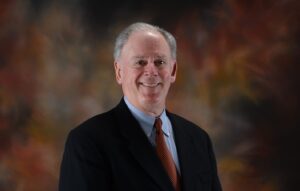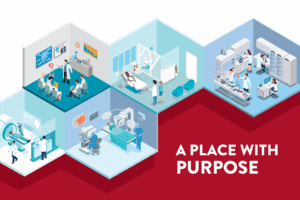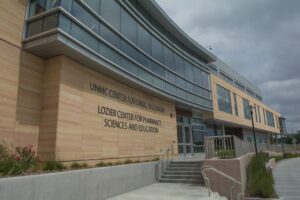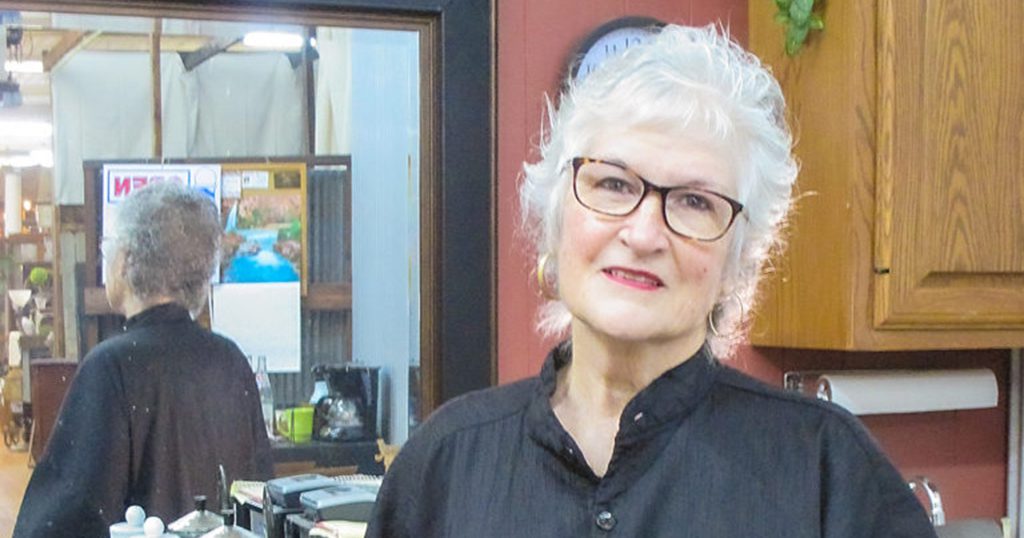Cutting-edge Clinical Trials Provide New Hope for Early Detection of Pancreatic Cancer
By Ed Rider
“You have pancreatic cancer.”
These four words are among the most devastating a person will ever hear. The difficulty of diagnosing cancer of the pancreas early makes it one of the most lethal and aggressive types of cancer — the third leading cause of cancer deaths in the United States. These individuals have just a 10% chance of living beyond five years. Most are diagnosed with stage 4 cancer and have little hope of long-term survival.
On average, 115 Americans die from this dreadful disease every day.
“Jeopardy” host Alex Trebek and baseball Hall of Famer Bob Gibson both died from pancreatic cancer about a month apart in the fall of 2020. Every year, more than 60,000 people in the United States are faced with a similar diagnosis — people like Linda Kimball, the owner of Old School Clipper, a men’s barber shop in Atlantic, Iowa.
“I was in shock and a little scared because I knew that it was a bad cancer to have,” Kimball said.
PANCREATIC CANCER CENTER OF EXCELLENCE
Despite the dismal outlook for survival, researchers and clinicians at the University of Nebraska Medical Center and its clinical partner, Nebraska Medicine, believe pancreatic cancer can be detected in its earliest stages. That belief is so strong that in 2018, the University of Nebraska Board of Regents approved establishing the Pancreatic Cancer Center of Excellence at the Fred & Pamela Buffett Cancer Center, which celebrates its five-year anniversary this summer.
James Armitage, M.D., and Shirley Young both lost their spouses to pancreatic cancer. Jim Young, former chair of Union Pacific Railroad, died in 2014, two years after his diagnosis. Nancy Armitage died 16 months after her diagnosis of pancreatic cancer.
“It’s hard to describe how much this disrupts your life,” said Armitage, the Joe Shapiro Professor of Medicine in UNMC’s division of oncology and hematology and a cancer physician at Nebraska Medicine. “I went to talk to Shirley’s family about developing a pancreas cancer program, and she understood the situation.”
The result was the development of the Pancreatic Cancer Center of Excellence, which features a comprehensive program of research and care. Sunil Hingorani, M.D., Ph.D., an accomplished and internationally recognized pancreas cancer researcher and clinician, has been named the inaugural recipient of the Nancy Armitage Pancreas Cancer Clinical Research Presidential Chair and the first director of the Pancreatic Cancer Center of Excellence at UNMC and Nebraska Medicine.
Dr. Hingorani’s research success is well documented. He helped develop a model to accurately mimic human pancreas cancer from its precancerous inception to its advanced stages.
THE PATH TO BETTER OUTCOMES
Kelsey Klute, M.D., assistant professor of internal medicine at UNMC’s division of oncology and hematology and a gastrointestinal medical oncologist at Nebraska Medicine, has treated more than 300 patients with pancreatic cancer, most of whom had advanced disease. Klute said that UNMC’s world-class researchers and clinicians are working diligently to find new ways to detect pancreatic cancer earlier through four clinical trials and a recently developed program in early detection — initiated by Tony Hollingsworth, Ph.D., the Hugh & Jane Hunt Chair in Cancer Research at UNMC — that screens family members with an inherited risk for developing this cancer.
Klute said she and her colleagues hope to expand the availability of clinical trials at UNMC and Nebraska Medicine. She said she is confident the trials, which will focus on early detection, will help lead to increased survival of the disease.
“Clinical trials are our best way to improve survival not only for patients diagnosed with pancreas cancer over the next five or 10 years, but also for patients facing pancreas cancer today,” Klute said. “Their best chance at beating the status quo is by enrolling in a clinical trial.”
ROAD TO RECOVERY
Kimball never considered in March 2021 that she might have pancreatic cancer when she began to experience pain in her stomach that radiated to her back. Although she had developed acid reflux disease, high blood pressure and Type 2 diabetes in her 50s, she considered herself to be healthy for a woman in her early 70s. Thinking her acid reflux medication was no longer working, she went to see her physician in Atlantic. Additional tests at the Fred & Pamela Buffett Cancer Center revealed pancreatic cancer.
“I went into it thinking, ‘OK, it’s stage 1. Let’s get it fixed,’” Kimball said. “I just decided that I was going to take things one day at a time because I wasn’t ready to lie down and die.”
Klute presented Kimball with the opportunity to take part in a clinical trial that incorporated a heart failure medication called digoxin with FOLFIRINOX, a standard chemotherapy drug. Kimball said she jumped at the opportunity.
“I had no reservations once Dr. Klute explained that this was not a new medication, that it had been around for years and had been used for heart conditions,” Kimball said.
The trial included eight rounds of chemotherapy, each consisting of six hours of treatment at the Fred & Pamela Buffett Cancer Center and another 48 hours of treatment at home. The process was repeated every two weeks. Six weeks after completing this treatment regimen, Kimball underwent Whipple surgery, a complex, eight-hour procedure to remove the head of the pancreas, where most cancerous tumors are located. After recovering from surgery, Kimball completed four more rounds of chemotherapy independent of the trial.
Despite some lingering effects from the chemotherapy, Kimball is feeling better about her prognosis. On Dec. 30, Kimball received news that her most recent CT scan showed no signs of cancer.
“At this point, my body is still healing. I’m getting stronger every day,” she said.
“Clinical trials are our best way to improve survival not only for patients diagnosed with pancreas cancer over the next five or 10 years, but also for patients facing pancreas cancer today,”
Kelsey Klute, M.D.
You may also like ...

Moving the Needle on Diabetes
A visionary gift is transforming diabetes care in Nebraska and beyond.

The Future of Health Care Is Being Built in Nebraska
Project Health is more than a building. It’s a $2.19 billion vision to transform patient care, train the next generation of health care professionals, fuel research and boost Nebraska’s economy.

Donor support creates ‘enriching and supportive environment’ for future pharmacists at UNMC
“The College of Pharmacy Innovation Fund continues to be a vital source of support for our students, faculty and the UNMC Alumni Association. These collective gifts help us create a more enriching and supportive environment for future pharmacists. We are deeply grateful for your generosity.”



